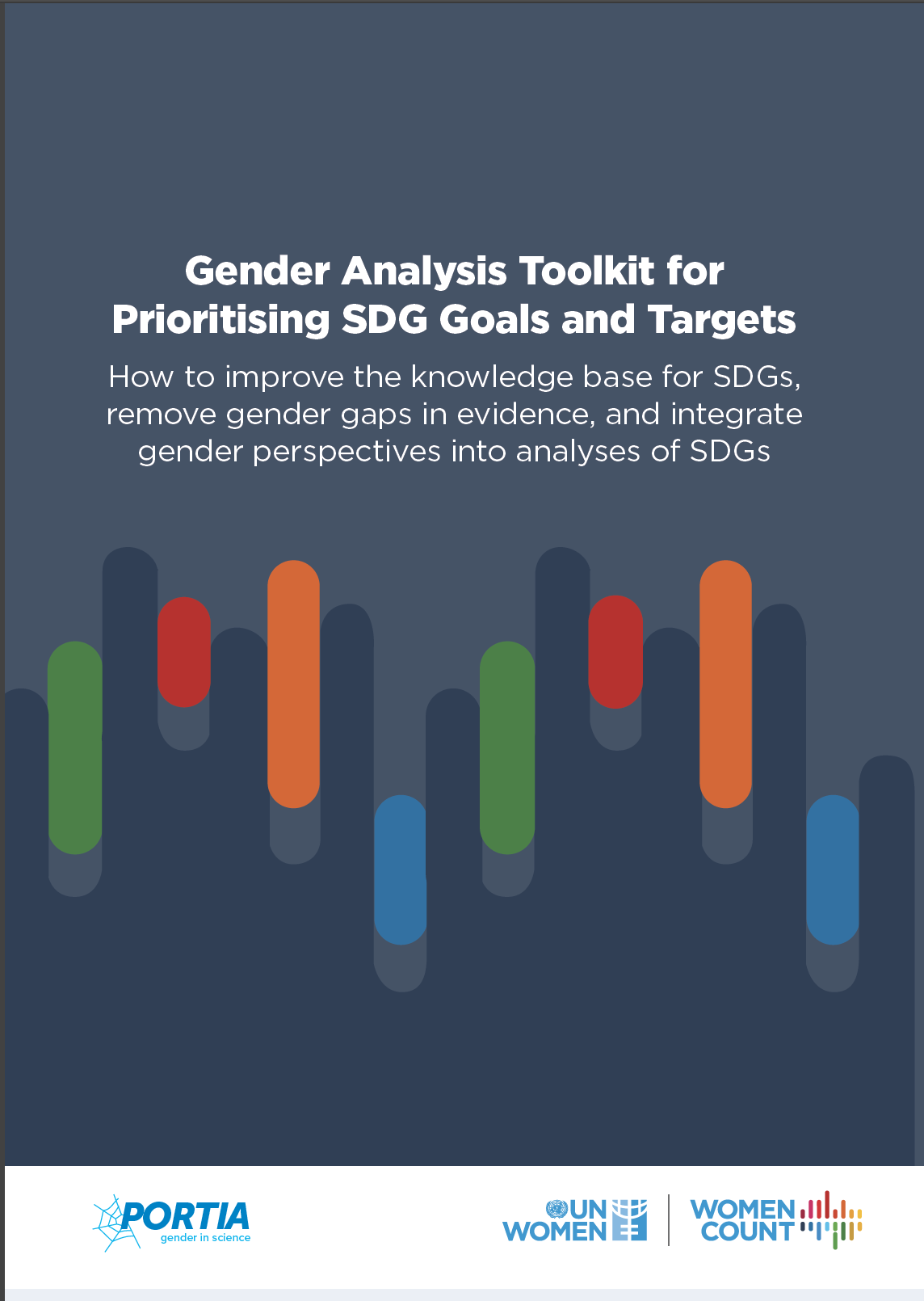
Gender Analysis Toolkit for Prioritising SDG Goals and Targets How to improve the knowledge base for SDGs, remove gender gaps in evidence, and integrate gender perspectives into analyses of SDGs

Since the start of Agenda 2030, numerous academic studies investigated how to best understand and exploit the integrated, indivisible, and interlinked nature of the goals to come up with implementation strategies that can achieve multiple benefits with fewest trade-offs. The purpose of the toolkit is to explain the shortcomings of current methodological approaches to SDGs analysis with regard to their capacity to recognise and value gender related interlinkages, and to show how to improve them so that opportunities to achieve gender equality benefits are not overlooked. No goal should be assumed to be free of gender inequality concerns, even if its targets appear to be ‘silent’ on gender.Within this context the toolkit has three aims: 1) to improve the knowledge base for SDGs; 2) to remove gender gaps in evidence used; and 3) to integrate gender perspectives into the methodological approaches used for analysing and interlinking SDGs for effective implementation strategies. Analysing targets from a gender perspective can be done in several thus far largely ignored ways, as explained in Parts 2 and 3 of the toolkit. This document is primarily directed at sustainability and SDG researchers, analysts, and policy experts who may not be familiar with available gender knowledge and its relevance to Agenda 2030, but also gender researchers and scholars whose efforts are needed to improve the knowledge base on gender where currently there are gaps.